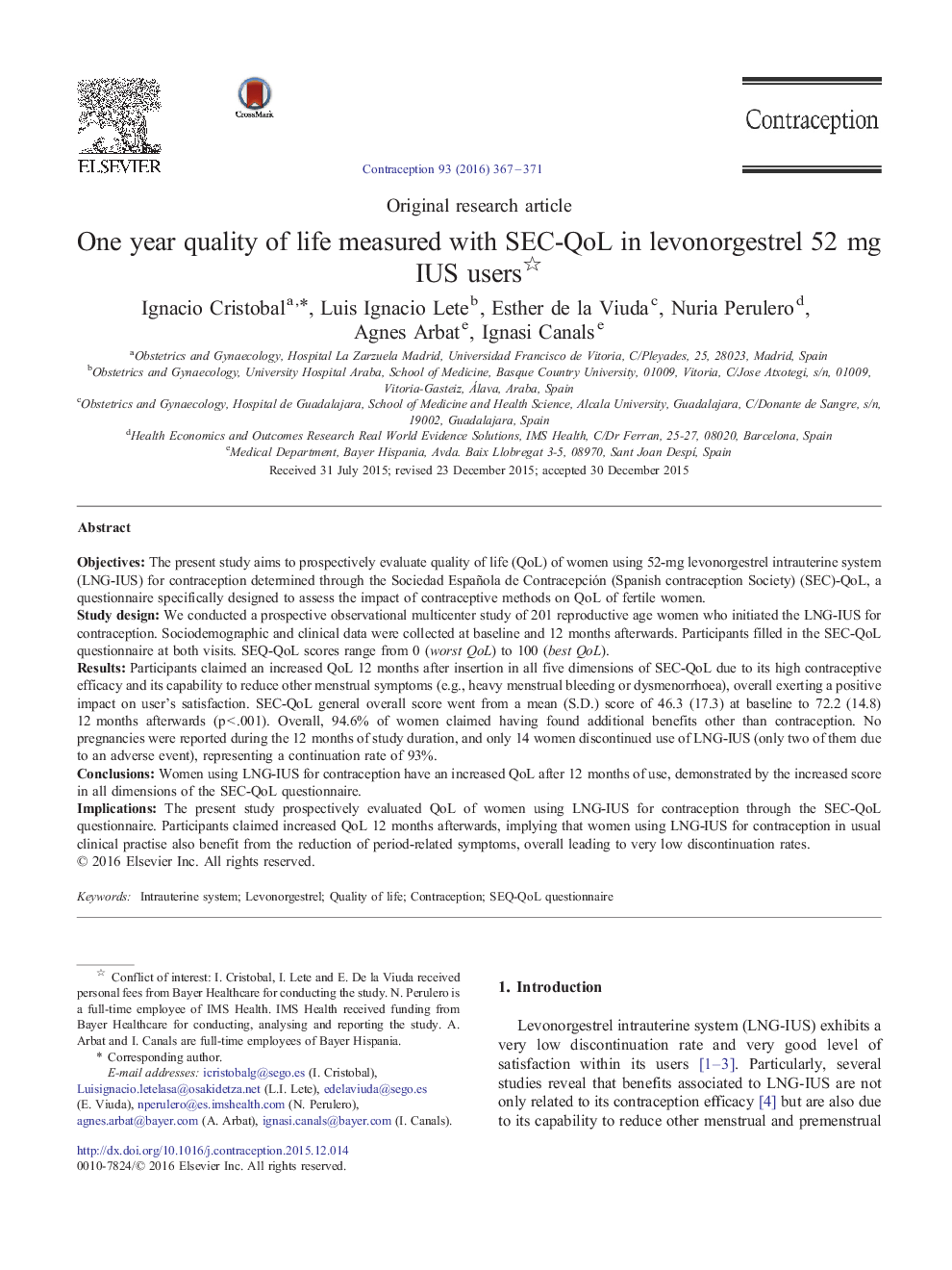| کد مقاله | کد نشریه | سال انتشار | مقاله انگلیسی | نسخه تمام متن |
|---|---|---|---|---|
| 6170767 | 1251415 | 2016 | 5 صفحه PDF | دانلود رایگان |

ObjectivesThe present study aims to prospectively evaluate quality of life (QoL) of women using 52-mg levonorgestrel intrauterine system (LNG-IUS) for contraception determined through the Sociedad Española de Contracepción (Spanish contraception Society) (SEC)-QoL, a questionnaire specifically designed to assess the impact of contraceptive methods on QoL of fertile women.Study designWe conducted a prospective observational multicenter study of 201 reproductive age women who initiated the LNG-IUS for contraception. Sociodemographic and clinical data were collected at baseline and 12 months afterwards. Participants filled in the SEC-QoL questionnaire at both visits. SEQ-QoL scores range from 0 (worst QoL) to 100 (best QoL).ResultsParticipants claimed an increased QoL 12 months after insertion in all five dimensions of SEC-QoL due to its high contraceptive efficacy and its capability to reduce other menstrual symptoms (e.g., heavy menstrual bleeding or dysmenorrhoea), overall exerting a positive impact on user's satisfaction. SEC-QoL general overall score went from a mean (S.D.) score of 46.3 (17.3) at baseline to 72.2 (14.8) 12 months afterwards (p < .001). Overall, 94.6% of women claimed having found additional benefits other than contraception. No pregnancies were reported during the 12 months of study duration, and only 14 women discontinued use of LNG-IUS (only two of them due to an adverse event), representing a continuation rate of 93%.ConclusionsWomen using LNG-IUS for contraception have an increased QoL after 12 months of use, demonstrated by the increased score in all dimensions of the SEC-QoL questionnaire.ImplicationsThe present study prospectively evaluated QoL of women using LNG-IUS for contraception through the SEC-QoL questionnaire. Participants claimed increased QoL 12 months afterwards, implying that women using LNG-IUS for contraception in usual clinical practise also benefit from the reduction of period-related symptoms, overall leading to very low discontinuation rates.
Journal: Contraception - Volume 93, Issue 4, April 2016, Pages 367-371